Before Facebook walls, Twitter feeds, Reddit and Telegram channels, there was RSS – a way to get news and updates from multiple sources, all conveniently gathered in one place. Social media may have taken a significant chunk of market share from RSS, but it's still a fantastic tool for any news junkie, infovore, market watcher, or social media-unfriendly individual. In short:If having a constantly updated, self-curating feed of information sounds like your idea of a good time, you'll probably appreciate RSS.
ContentsWhat is RSS?What can I use RSS for?Getting Started:Choose your weapon1. InoReader (Web/Android/iOS/Windows Phone)2. Feedly (Web/Android/iOS)3. The Old Player (Web/Android/iOS/macOS/Windows Phone/Linux/Browser Extensions)4. NewsBlur (Web/Android/iOS)Create your spaceConclusion:RSS is not dead
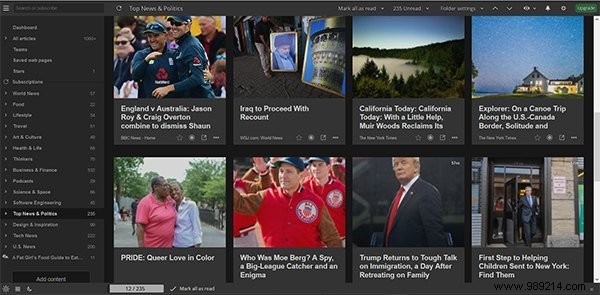
There are many ways to use RSS, and not all of them are immediately obvious.
You can be quite creative with the items you put in an RSS feed – shipping updates, flight delays, music recommendations, etc. You can even follow Reddit and Digg, if you're one of the nine people still using Digg.
Because RSS feeds are so easy to generate, you don't have to worry about content. Your favorite sites are probably already set up with them. The real key to getting the most out of RSS is finding a good reader with a nice design and useful features.
You can get web, desktop, mobile and even browser extension versions, most of which allow you to subscribe to up to 100 sites before asking you to pay to upgrade your subscription to access more features. There are dozens, but these four are a great place to start.
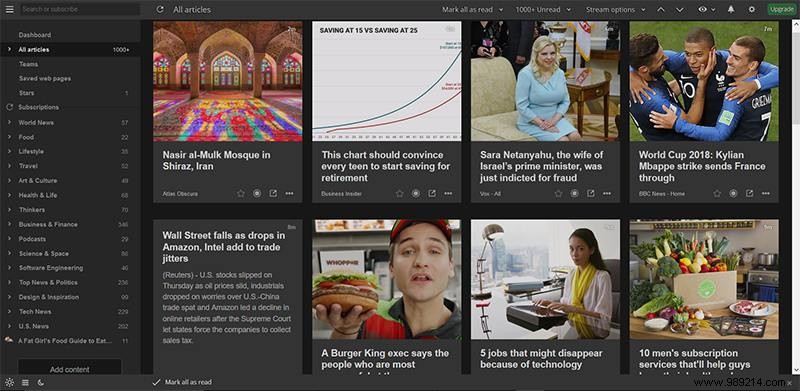
InoReader has a nice layout, no subscription limits (especially why it's at the top of this list), and more free features available than average. It's user-friendly, if a little less elegant than some others, and experienced users will appreciate its customization.
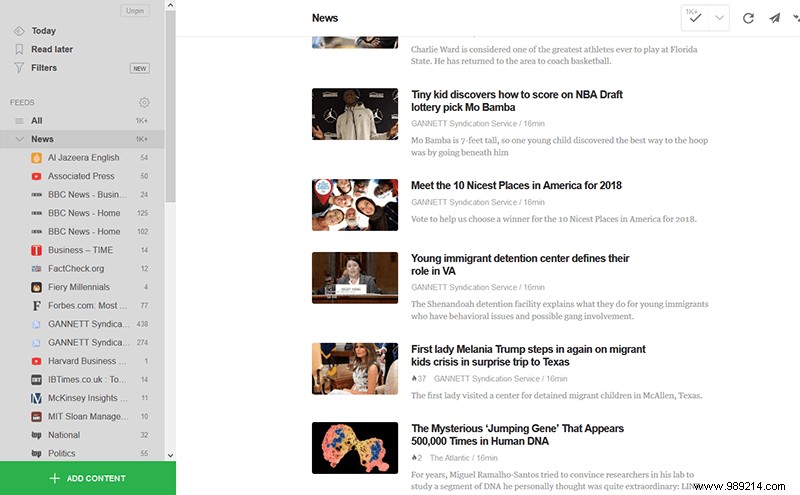
Feed is the most popular player with a smooth and very user-friendly interface. This is probably the easiest way to access RSS. You get up to 100 subscriptions to the site with a free account, and its algorithms are quite good at providing you with relevant and trending content.
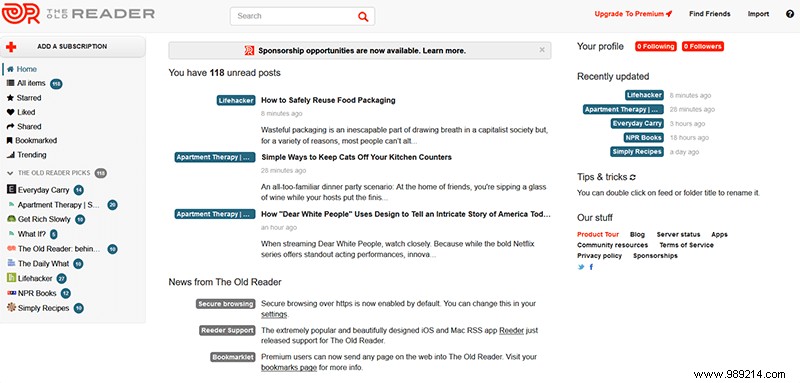
Not only does Old Reader have a nice modern-retro interface, but its open API means it has a plot access possibilities. It allows up to 100 subscriptions with a relatively inexpensive premium option and is excellent for curating trending content with a social focus.
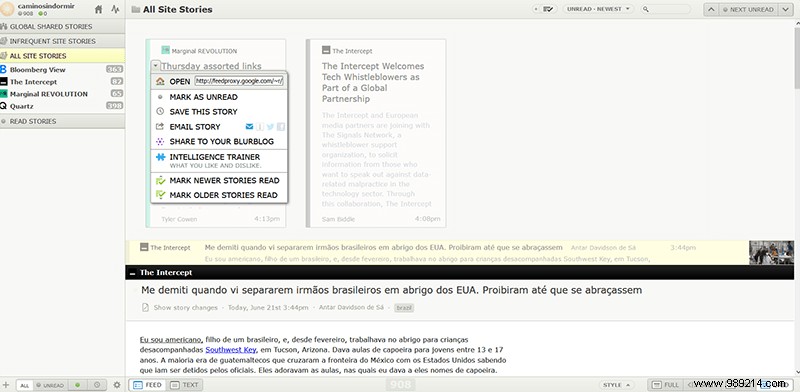
NewsBlur's interface is a bit clunky and only gives you 64 free sites, but the machine learning that lets you zero in on exactly the type of content you want by up-voting or up-voting certain aspects of articles really sets NewsBlur apart.
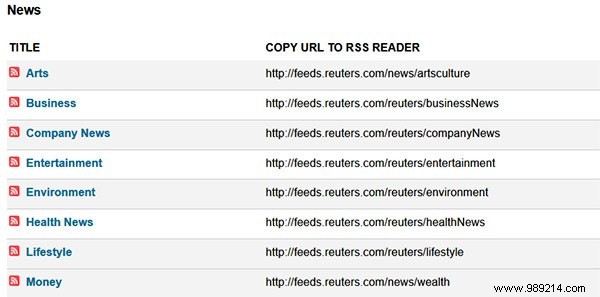
Once you've chosen a drive, all you need to do is start extracting your sources. Most RSS readers have a search function that will find just about any major site or publication, but if it doesn't appear there, most things are easy to add manually. Just paste the URL into your RSS reader, and it should automatically find the feed for you, or keep an eye out for the RSS symbol on blogs and sites, which will take you directly to their feed. Once you've added your sources, you can organize them however you like!

If you're a late millennial internet user, chances are you don't currently use RSS and may not even have heard of it. However, it is still an integral part of the Internet, and it is pleasantly free from the personal issues and opinions that so often plague information shared on social media. While its information aggregation properties are interesting, perhaps RSS's most valuable feature now is its ability to help users consciously balance the perspectives they read, going beyond Facebook and Twitter trends. .
Image credit:RSS Digital Ad Network Technology Concept by Rawpixel.com/Shutterstock